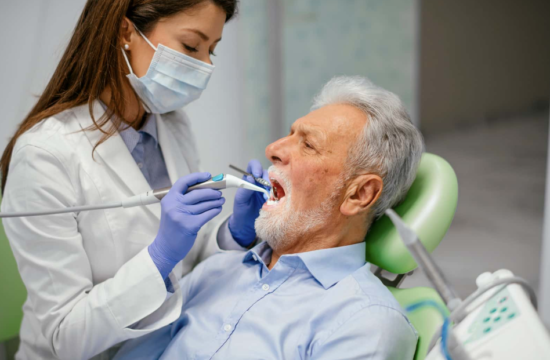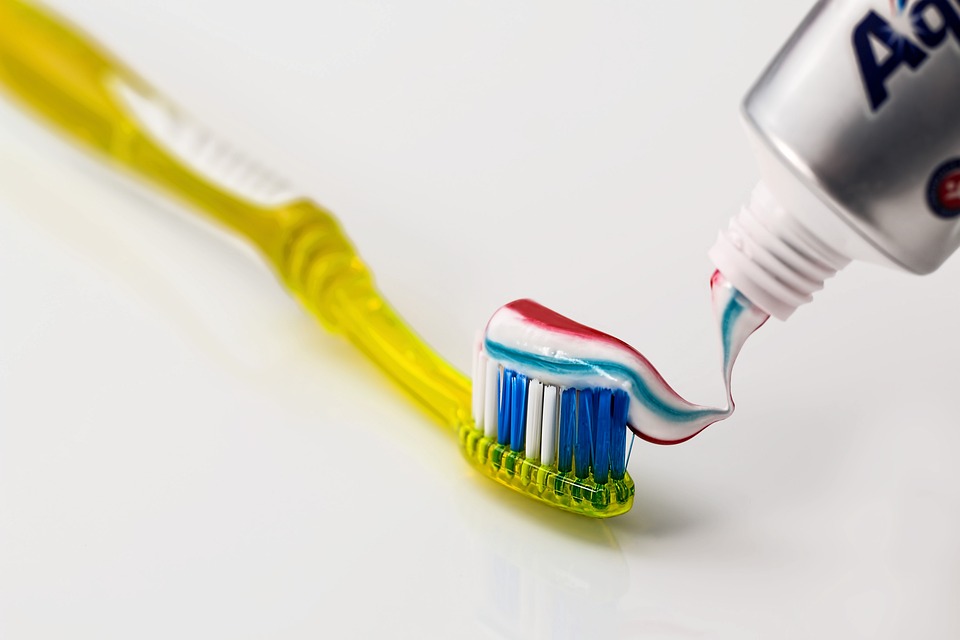An exposed tooth root can be uncomfortable to deal with. It may cause sharp pain and sensitivity when you’re brushing your teeth and when you’re eating foods that are hot, cold, sweet, sour, or spicy.
Your roots can become exposed as a result of receding gums or any kind of trauma that damages your gums.
Receding gums become more common with age and can occur even if you have perfect oral hygiene. However, it’s often a sign of gum disease. Research has found that about
Keep reading to find out what symptoms you can expect when your tooth root is exposed, what might be causing it, and how you can treat it.
The following are common symptoms of an exposed tooth root. Symptoms can vary depending on the cause of your exposed root. You might also have exposed roots with no symptoms.
- Tender gums. If your tooth root is exposed, you may experience tender or sore gums that bleed when you brush them.
- Longer-looking tooth. Your tooth may look longer than usual if your gum line is receding.
- Swelling and pain. You may develop sharp pain and swelling if the nerve or pulp of your tooth becomes infected.
- Tooth discoloration. You may notice discoloration if you also have tooth decay.
- Sensitivity. Brushing your teeth may cause sensitivity, as well as eating food that’s:
An exposed tooth root is often a sign of gum disease or receding gums.
Gum disease
Poor dental hygiene typically causes gum disease. It occurs when bacteria in the form of plaque enter the space between your teeth and gums and cause an infection.
In severe gum disease, the supporting bone around the teeth recedes and expose the root.
Receding gums
Gums can recede from:
- gum disease
- natural aging process
- poor dental habits
- genetic predisposition
Other causes
Although gum disease and receding gums are common reasons for an exposed tooth, other factors may also contribute, such as:
- Hard or aggressive brushing. A
1993 study found that brushing with a hard-bristled brush was associated with gum recession. Brushing your teeth overly aggressively may also lead to gum recession. - Tobacco use. All forms of tobacco
raise your risk for developing gum disease, which increases your risk for developing receding gums. - Tooth grinding. Repeatedly grinding or clenching your teeth can cause pressure that wears away your gums. Many people unknowingly clench their teeth at night while they sleep.
- Injury. A traumatic mouth injury can expose the root of your tooth.
- Misaligned teeth. Misaligned teeth are more susceptible to gum recession than aligned teeth.
Treatment for an exposed tooth root depends on its cause and the specific symptoms you’re experiencing. The following are some potential treatment options.
Gum recession
- Crown. A dental crown is a cap for your tooth that can protect and strengthen it. A crown may be able to cover the exposed root of your tooth.
- Gingival mask. If you have several teeth with gum recession, your dentist may recommend a gingival mask. This is a removable artificial gum that can cover receding gums.
- Gum graft. Your dentist uses a piece of tissue from a healthy gum or the roof of your mouth to cover the receding gum.
- Flap surgery. During flap surgery, a surgeon will make a small cut in your gum, remove tartar buildup and bacteria, and cover the exposed part of your tooth.
Gum disease
- Dental scaling. With dental scaling, your dentist may remove bacteria and tartar below your gum line.
- Root planing. Your dentist smooths the surfaces of your roots to prevent a further buildup of bacteria.
- Surgery. Your dentist may recommend flap surgery or a gum graft if you have advanced gum disease.
- Root canal. If the root of your tooth becomes infected, you may need a root canal, where your dentist removes the infected core of your tooth.
Teeth grinding
Treatment for teeth grinding depends on its cause. If you clench your teeth during the day, increased awareness might be enough to target the problem. If you clench your teeth at night, your dentist may recommend a mouthguard.
Misaligned teeth
Your dentist can treat misaligned teeth with a variety of methods, including:
An untreated exposed tooth root won’t get better unless you receive proper treatment from a dental professional.
If you think one of your roots might be exposed, talk to your dentist about the best treatment options. They can also identify signs of gum disease that may be causing the exposed root, and help prevent it from worsening.
Some people are genetically more likely to develop receding gums than others.
Even though you can’t change your genetics, you can still take steps to reduce your chances of developing receding gums. Three of the biggest contributing factors are smoking, plaque buildup, and improper brushing.
One
- 44.1 percent had plaque accumulation
- 42.7 percent weren’t brushing their teeth properly
- 7.1 percent regularly smoked or used smokeless tobacco
Here are some ways you can reduce your chances of developing exposed roots:
- Get regular dental checkups. Getting regular dental checkups allows your dentist to identify early signs of gum disease or recession.
- Avoid tobacco. More than
40 percent of people between the ages of 20 to 64 who smoke cigarettes have untreated gum disease. This number is twice as high in smokers as people who have never smoked. Quitting can be difficult, but a healthcare provider can help create a cessation plan that works for you. - Brush and floss your teeth. The American Dental Association recommends that you brush your teeth twice per day and floss once per day.
- Avoid aggressive brushing. Using a toothbrush that’s too hard or brushing your teeth aggressively can damage your gums and expose the roots of your teeth.
- Avoid teeth grinding. Pressure from grinding your teeth can lead to gum recession. Wearing a mouthguard may help if you grind your teeth in your sleep.
Exposed tooth roots are commonly caused by gum disease or receding gums. Even if you have perfect dental hygiene, you can still develop an exposed tooth root.
If you’ve been having tooth sensitivity or pain, it’s a good idea to visit your dentist. Like many dental problems, an exposed root won’t get better unless you have it professionally treated.







